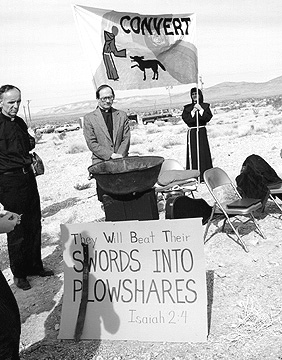by Stefan Schindler

Will we ever turn our swords into plowshares? The question haunts us still.
The kings of caprice cast shadows on the wall, and thereby turn us all into victims of their elephantiastical delusions. Plato’s cave . The matrix of manipulation. The self-crucifixion of what passes for civilization. A crime so horrific Thomas Merton calls it “the unspeakable.” Yet John Lennon spoke its polymorphous perversity with scorching clarity: “They torture and scare you for twenty odd years, then they expect you to pick a career.”
It’s been said that memory and imagination are what make humans human. If that’s true, then what we are – and what we do – is a function of what we remember and what we imagine. Difficult indeed to remember what one has never heard or read. Even more difficult, then, to imagine what could be.
Jean-Paul Sartre said: “A writer has a place in his age. Each word has an echo, as does each silence.”
Faulkner said: “The past is not dead. It’s not even past.”
Dylan said: “He not busy being born is busy dying.”
Thomas Paine said: “These are the times that try men’s souls.”
We are all on trial now. Jeremiah’s prophetic warning was never more relevant: “You shall reap the whirlwind.”
“The Wasteland” is not just a poem by T.S. Eliot; nor merely a medieval legend, best portrayed in Parsifal’s quest for the Holy Grail. The Wasteland is our fate, unless we change our ways. The Weapons of Mass Destruction that threaten our collective survival are matched in power only by the Weapons of Mass Dysfunction which turn humans into lemmings stampeding toward the cliff.
Chogyam Trungpa invites us to “recollect the sanity we were born with.” To do so is to break the chains of illusion which cripple both memory and imagination.
Martin Luther King said: “We must choose between nonviolence and nonexistence.”
To be or not to be – the choice is ours. To educate or ignorate – that is the question. Courage of conscience is our only hope.



